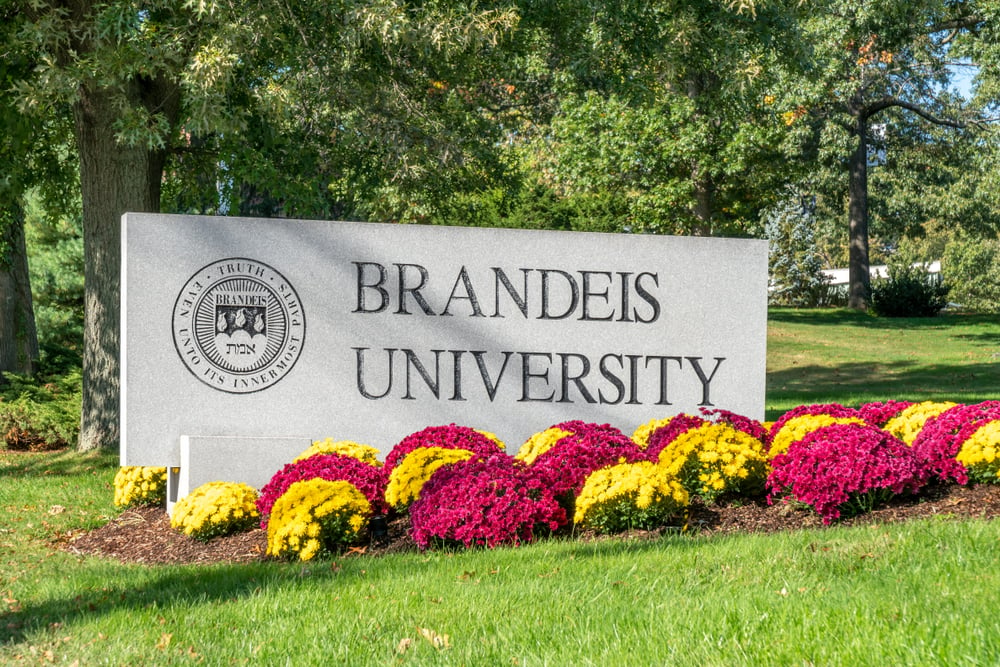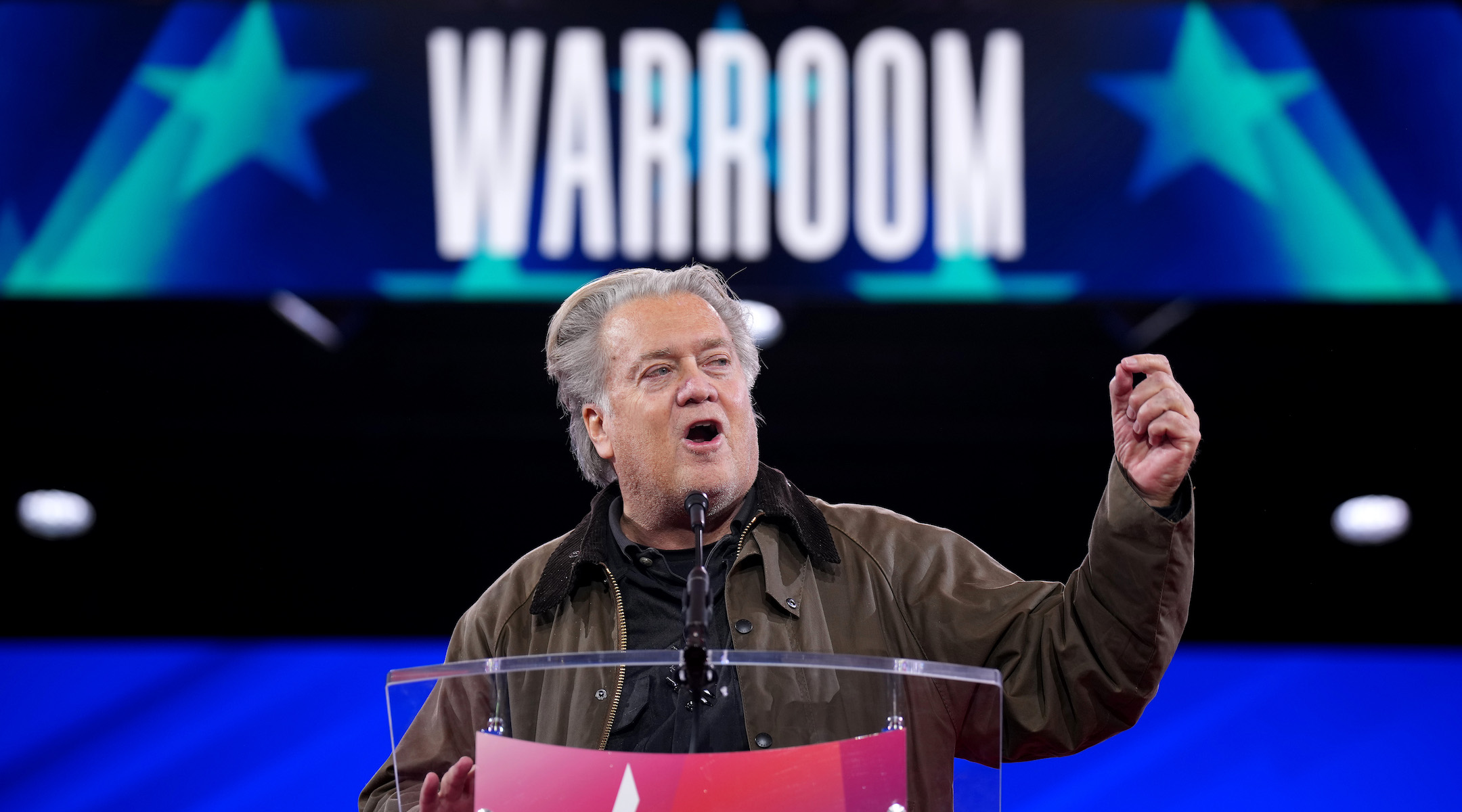ARTICLE AD BOX

There are signs that leaders of the Schusterman Center for Israel Studies are regurgitating parts of an anti-Israel narrative that has been poisoning the academic world.
By Moshe Phillips, JNS
Why is the Israel Studies Center at Brandeis University describing the Hamas war against Israel merely as the “suffering of Israelis and Palestinians?” Why is the center boasting that it “brings Palestinian scholars” to campus? Why is it calling the biblical heartland of Israel “the Palestinian Territories”?
These are among the many troubling questions that arise from the new catalogue issued by the Schusterman Center for Israel Studies at Brandeis University, which describes the center’s recent activities and makes an impassioned pitch to prospective donors.
Before members of the Jewish community reach for their checkbooks, they should take a long, hard look at what the Schusterman Center has been saying and doing about Israel in recent months.
The catalogue opens with an appeal from the center’s director, professor Alexander Kaye. “Since October 7, 2023,” teaching about Israel is “particularly challenging,” Kaye writes. “Witnessing the scale of trauma and suffering of Israelis and Palestinians is overwhelming … .”
That’s his entire description of Oct. 7. He doesn’t call it a Hamas terrorist attack. He doesn’t describe it as a Hamas assault. In fact, he doesn’t mention Hamas or terrorism at all. It’s just “trauma and suffering” of both “Israelis and Palestinians” alike.
There is a kind of both-sides-ism that has become almost an epidemic in the academic world and beyond.
Sure, it’s technically correct to say that some Palestinian Arabs in Gaza have suffered; however, they’ve suffered as a result of Hamas’s actions, like storing its missiles in kindergartens.
The suffering experienced by Israelis is just the opposite; they are victims of Arab terrorist aggression. For Kaye to say only that both “Israelis and Palestinians” have suffered, without any indication of who or what is responsible for their suffering, is outrageous.
In the next paragraph, Kaye writes about the integrity of Israel studies and the mission of the Schusterman Center. He emphasizes the importance of “guarding against those who would subordinate it to ‘us vs. them’ politics.”
Who exactly is it that’s doing the “subordinating”? Who is he claiming is trying to promote “us vs. them politics”?
Kaye doesn’t spell it out, but it’s not hard to decipher that particular dog whistle. He’s obviously talking about pro-Israel Jews, whom left-wing academics consider to be too pro-Israel.
This wink-and-nod to the Jewish far-left seems to be an assurance that Kaye won’t let those overly pro-Israel types steer the Schusterman Center.
Kaye proceeds to tick off activities of the center that he thinks will attract potential donors. The first one is: “We have assembled expert panels, brought Israeli and Palestinian scholars … to campus.”
I’m all for scholarly discussions, but is there some kind of shortage of colleges inviting Palestinian speakers, that Brandeis, which was created as a Jewish-majority, pro-Zionist university, needs to bring them in, too?
Do we not hear the Palestinian Arab perspective enough on CNN and the op-ed page of The New York Times? Must Brandeis University, too, provide a platform for Palestinian advocacy?
Page 8 of the Schusterman catalogue returns to the topic of Oct. 7. Once again, however, there is no mention of Hamas and no mention of the Palestinian-Arab war against Israel. Instead, this: “Many of us have close personal connections to Israel and the Palestinian Territories.”
The large staff of historians at Brandeis, including at the Schusterman Center, know full well that there is no legal, historical, or moral basis to refer to Judea and Samaria as “the Palestinian Territories.”
They have been Jewish territories for thousands of years, since biblical times. Ancient Jewish cities in those areas, such as Hebron, Shechem and Shiloh are not “Palestinian.” The Cave of the Patriarchs, where the forefathers and foremothers of the Jewish nation are buried, is not part of “Palestinian territory.”
On Page 10, the reader learns that the Schusterman Center has a course called “Cultural Contact Zones in Israel-Palestine,” and on Page 13, Kaye quotes himself talking about “what is unfolding in Israel and Palestine.” The term “Israel-Palestine” appears yet again on Page 19.
As a historian, Kaye knows there is no state called “Palestine” and never has been one. He may favor creating one, but that doesn’t give him the right to pretend it already exists. Political partisans use that tactic all the time—pretending something exists to get people used to the idea that it should exist. It’s a sneaky way of trying to normalize it. It would be extremely irresponsible for a historian such as Kaye to be doing that.
The catalogue concludes with a memorial notice about the son and daughter-in-law of a Brandeis faculty member who were murdered by Hamas terrorists on Oct. 7. But the reader is told only that they were “killed on Oct. 7, 2023” with no mention of who killed them or how. Those are strange and troubling omissions.
Of course, there are pro-Israel professors at Brandeis and worthwhile activities taking place under the auspices of the Schusterman Center. But there are also disturbing signs that a kind of creeping Palestinization may be underway, in which the center’s leaders are absorbing and regurgitating parts of the anti-Israel narrative that has been poisoning the academic world.
Adopting the language of the Palestinian-Arab advocacy movement contravenes the very reason Brandeis University was founded and dishonors the memory of the great Zionist leader after whom it is named.
Moshe Phillips is national chairman of Americans For A Safe Israel, a leading pro-Israel advocacy and education group.
The post Is Brandeis University being ‘Palestinized?’ appeared first on World Israel News.

 3 months ago
146
3 months ago
146







 English (US) ·
English (US) ·